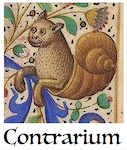A tale of contrasting stereotypes
There are at least two Europes: Northern Europe, and Southern Europe. (Maybe three, counting Eastern Europe, which is also a different universe altogether, but not one that I am very familiar with.) So, here, I will talk only about the North and the South.
I’m fascinated by the Northern European countries, in particular the Scandinavian ones, but the fascination is closely associated with a slight feeling of strangeness or alienness. I just don’t fully understand the people or the society (not to mention most of the languages), and I know that, even if I live there 30 or 40 years, I will never fully belong.
Southern Europe has many problems and perhaps many strange things too — but it is home. Whenever I am in Spain, Portugal or Italy, I can instantly recognize many places, things and people, even if I have not seen them before. Even France, which is perhaps somewhere between the Southern and Northern ethos, is not a foreign country.
Of course, there is also a mutual fascination between Northern and Southern Europeans, as two different tribes that share the same continent and history, but, partly because of the climate and partly because of, I suppose, genetic and cultural reasons, have somewhat drifted apart.
The fascination is not just mine, of course, and it goes the opposite way too. Germans and Brits have always been fascinated by Spain and Italy, and I do not mean just the tourists that every summer come down in droves. Historically, Southern Europe was a theme and setting for many northern artists and writers, starting with Shakespeare, who wrote a third of his plays set in Italy (and a few in France, and one in Spain).
“O for a beaker full of the warm South”, wrote Keats, “That I might drink, and leave the world unseen.” He fled from England to Rome, seeking relief for his tuberculosis, but found only an early death.
After that, what can I say that has not been said before, by better writers?
Northern Europe is Protestant and austere. Southern Europe is Catholic and baroque.
(Is the austerity of the Protestant churches really related to their dislike of images, in particular of Saints and the Virgin Mary, or is it just just a reflection of the austerity of the people? Just as the florid style of Catholic churches might be a reflection of the more florid people down south?)
Northern Europe is pragmatic and hard-working. Southern Europe is romantic and laidback. (Most business close from 1 to 4 — people do work, but they have time to eat and rest, too).
Northern Europe eats fast food. (Hamburgers and Frankfurters, or hot dogs, are of course German inventions). Southern Europe eats slow food.
Northern Europe drinks beer and spirits. Southern Europe drinks wine. (Although beer is now popular too. But the wine is better in the South).
Wherever the Catholic sun doth shine,
There’s always laughter and good red wine.
At least I’ve always found it so.
Benedicamus Domino! (Hilaire Belloc)
In Northern Europe people are cold but efficient. In Southern Europe they are warm but disorganized.
Northern Europe saves. Southern Europe gets indebted. (Northern Europe is the ant in the fable, Southern Europe the grasshopper).
Northern Europeans love (and sometimes envy) the laidback style of the South, but distrust Southern Europeans. Southern Europeans admire (and sometimes envy) the organization of Northern Europeans, but feel inadequate among them.
From the 1600 until the early 1800s, it was traditional for writers and artists and educated (and rich) people in general to do the “Grand Tour” — a trip across Europe from North to South, usually starting in England or Germany then going to France, then Italy, all the way down to Naples, and, sometimes, Sicily (Goethe went all the way to Sicily, and wrote about it). Part of the interest of the travel was finding the many contrasts between the North and the South.
I will be doing the opposite, going upwards, South to North. (But in a plane, so, no intermediary stops, and much more quickly).
From a place like home, to a place unknown.
Do we travel to see differences, or to find similarities?
Let me conclude with an excerpt of the poem “Questions of Travel“, by Elizabeth Bishop:
“Is it lack of imagination that makes us come
to imagined places, not just stay at home?
Or could Pascal have been not entirely right
about just sitting quietly in one’s room?
Continent, city, country, society:
the choice is never wide and never free.
And here, or there . . . No. Should we have stayed at home,
wherever that may be?”



You identify w/ the south, yet live in Montreal. Do you see Quebec as more southern in temperament than anglophone Canada? I visited once for a film festival. Seemed cosmopolitan w/ an Islamic aftertaste. Enjoyed Quebec City more. That had more French flavor.
Well, I’m not a native Montrealer. Montreal is really more of a cosmopolitan city than exclusively Quebecois, they have lots of Haitians, Arabs, Hindus, Chinese, Ukrainians, well, everything. Yes, Quebec City is more French in that sense. Although I wouldn’t also equate the Quebecois with the French, exactly. French Canada does feel different than the rest of Anglo Canada, though. Many good bakeries, etc. And yes, maybe a more “southern” than Anglo temperament, I suppose.